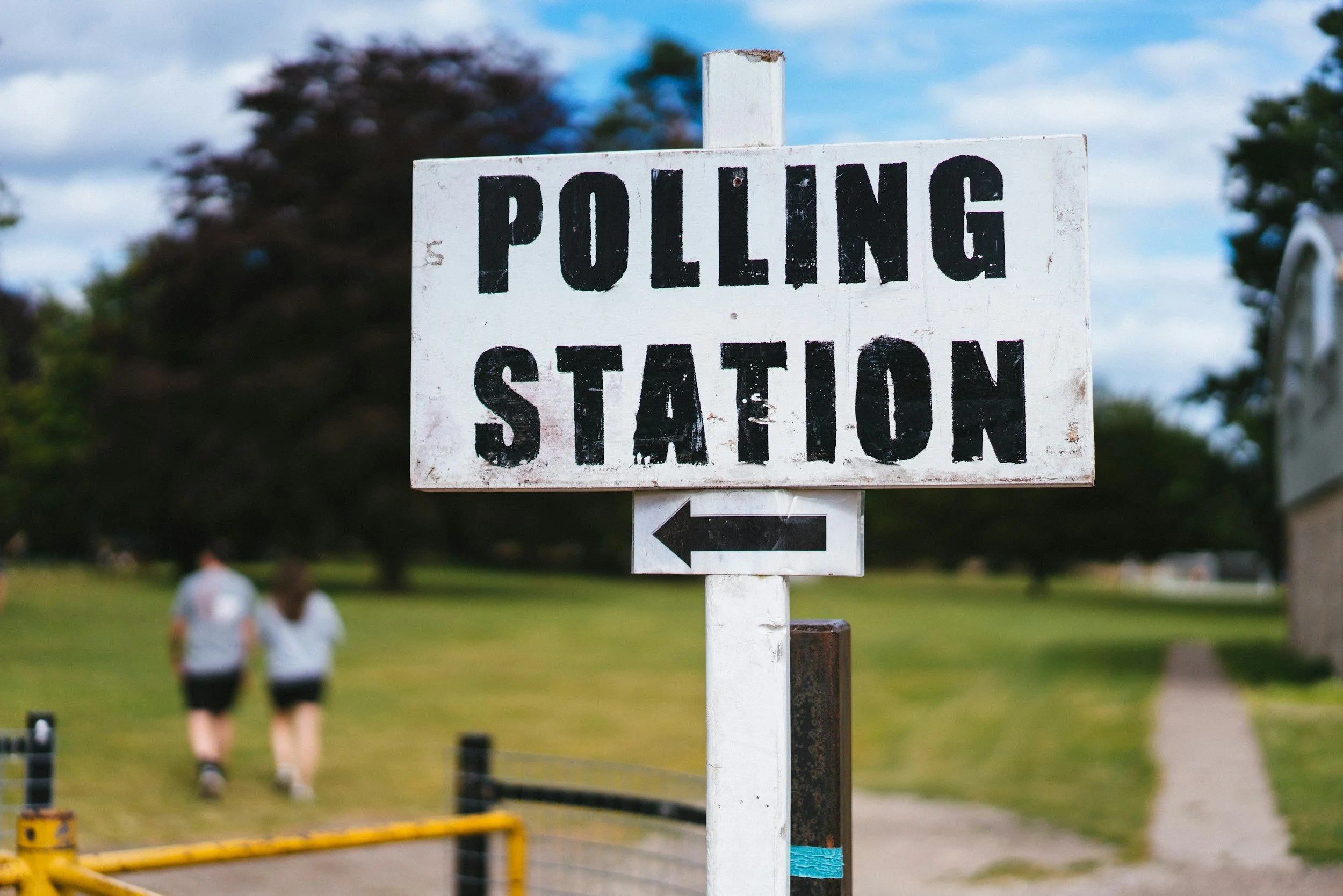
When Cues Collide
In many city elections across the United States, voters face a similar challenge: they are asked to choose among candidates they know very little about. Ballots often list only names, not party labels, and local races receive little media attention. In these low-information settings, voters look for clues that can serve as “shortcuts,” or anything that will help them quickly decide which candidate to vote for.

Do Canadian Municipalities Have a Hidden Ideological Pulse?
Are Canadian municipal politics simply about fixing potholes and managing traffic, or does ideology shape municipal behavior more deeply? In contrast to the U.S. and several other federations, Canadian municipal elections are overwhelmingly non-partisan. Fewer than one in five municipal officials run on party slates. This fact leads many to infer that Canadian city halls are free from the left-right ideological divide that exists at higher levels of government.

The Local Politics of Public Health
In this two-part miniseries, UAR Remixed speaks with several authors from the journal’s recent symposium, “The Intrinsic Relationship between Local Politics and Public Health.” We speak with the authors about their research, which covers a wide breadth of topics and ideas at the intersection of public health and politics in local contexts. In Part 1, we meet the authors and learn more about the big questions and pressing issues that prompted them to do this research. In Part 2, we’ll be thinking about the inherently political nature of public health policy, and how our present political climate is affecting public health research and institutions at the local level.

The Pernicious Effects of Uncertainty on Municipal Climate Action
Cities are well positioned to test policies designed to address climate change that could be implemented more expansively at higher levels. And many city officials are enthusiastic about leveraging local governmental powers to reduce greenhouse gases and prepare their cities for climate impacts. Cities like Washington, DC, for example, have implemented innovative decarbonization policies such as building performance standards designed to ramp down emissions from large buildings; others, like Boston, have created municipal heat resilience plans that seek to adapt local infrastructure and services for increased temperatures.

Local self-government against the state
The re-election of Donald Trump worries many people about the condition of democracy in the US. How much pressure from executive power can the country withstand? Yet with America’s rightward turn, authoritarianism is less an exception than a rule in the Global North. In Austria, the Freedom Party won the elections in 2024. The Netherlands had a similar outcome in 2023, with Geert Wilders’ success, and Italy has been governed by Brothers of Italy since 2022. The rightward turn in the West was initially taken in eastern Europe in the 2010s, where the Right rose to power in Hungary, Poland, recently joined by Slovakia.

Cities and Their Neighbors
Kenosha County, Wisconsin held the state's only contested race for District Attorney last year. The community's recent history of protest and violence resurfaced in the campaign as the Republican candidate had once represented a bail fund for Kyle Rittenhouse, a white teenager who shot and killed two local protesters. In the end, Republican Xavier Solis secured a narrow victory (51% - 49%) over Democrat Carli McNeil. However, this overall result obscures deep divisions within Kenosha County. Solis won just 43% in the city of Kenosha—the largest, most diverse city in the county and the site of the recent protests—he averaged 63% of the vote in the much smaller, whiter, and more rural communities in the rest of the county.

The Economic Background of City Councilmembers
Who are city councilmembers? One image might resemble a national politician — someone with strong partisan attachments, perhaps a lawyer by trade, who runs for office with ambitious policy goals. Alternatively, we might picture a local community member — someone well-known in their neighborhood, running for the part-time role not as a steppingstone to higher office, but to serve their community. Perhaps council is simply a natural next step in their career path. They might be elected because Republicans and Democrats alike trust their understanding of local issues and their commitment to schools and public safety.

Red, Blue, and Going for Gold
Hosting the Olympics in U.S. cities comes with unique challenges regarding planning and execution, given that due to the federalist system of government the responsibility of planning and hosting the games largely falls on state and local governments (Schimmel 2006). Many city officials now question the benefits of hosting the Olympics, given that many games have run over budget and residents of potential host cities have organized against the games, including recent bids from Boston and Chicago. Residents of Olympic host cities and potential host cities have expressed concerns regarding increased public spending, construction of Olympic facilities altering the public landscape, overcrowding, and gentrification of urban neighborhoods.

Tribal Politics or Discerning Voters?
The substantial influence of partisanship on voting behavior at the national level is widely studied and agreed upon. But to what extent does partisanship influence voting behavior at the local level? While some research indicates local elections may be similar to national elections in terms of partisan influence, there are reasons to be skeptical. Local elections typically are nonpartisan; even if they are not, issues may not fall neatly along party lines.

Political Underrepresentation Among Public Benefits Recipients
In November 2020, all eyes were on Pennsylvania in the lead-up to the hotly-contested presidential election. Four years prior, Donald Trump had carried the state by under 45,000 votes, out of more than six million ballots cast. Given its pivotal position as a presidential swing state, campaigns and grassroots groups blanketed the state to register and then turn out people to vote. Turnout in that election broke modern records.
But one key group of eligible voters was underrepresented among the record-high electorate: people receiving means-tested public benefits. Studying voter registration and voting in a large county in Pennsylvania, we found that people enrolled in means-tested public benefits programs register to vote and vote much less often than non-recipients.

Sanctuary Policies and the Influence of Local Demographics and Partisanship
Today we understand immigration to be a highly polarizing and partisan issue, but it was not always this way. At many times throughout the history of the United States, immigration was a political non-issue, particularly at the local level. When it has arisen as a matter of public debate, partisan cleavages around the issue were far from clearly defined.

Sanctuary Cities
Due to the stall in immigration reform at the federal level, there has been a rapid increase in state-level immigration policies over the last 15 years. Some states pursued restrictionist policies aimed at limiting immigrants’ rights and increasing immigration enforcement, such as Arizona through SB 1070, while others have sought to expand and protect immigrant rights, such as California in declaring the entire state a sanctuary. During the 2016 campaign and in his presidency, Donald Trump repeatedly promised increasing restrictive immigration policies aimed at reducing the number of undocumented immigrants, massive deportations, building a wall on the U.S-Mexico border, and imposing harsh penalties on immigrants.

Urban Gathering Addresses Bottom-Up Politics
Partisan polarization and gridlock at the federal level have effectively obstructed the path to positive solutions to the everyday problems of ordinary people. One consequence of this has been a proliferation of local initiatives, many percolating upwards from the very community residents experiencing these problems. To collect, analyze, and advance such "bottom-up" innovations, the Woodrow Wilson Center's Urban Sustainability Laboratory, with the University Seminar on Bottom-Up Politics at the George Washington University and the Metropolitan Policy Center of the School of Public Affairs at American University, held a a symposium on April 12, 2018, in Washington D.C. The symposium grew out of a grant from George Washington University. Under it a team of D.C. area scholars including Clarence Stone, Gregory Squires, Hilary Silver (all from GWU’s faculty), Blair Ruble and Allison Garland of the Wilson Center, and Derek Hyra of American University provided the planning and made the arrangements. Before his failing health forced him to withdraw, the late Thomas Kingsley of the Urban Institute was an integral part of the early planning.

Mayors, Partisanship, and Redistribution
In the face of federal and state intransigence, progressive policy advocates have increasingly looked to cities for innovative and aggressive redistributive policy. Recently promulgated local policies tackling issues like minimum wage and sick leave policies offer some preliminary evidence that urban governments are important players in this policy arena. Given their direct and indirect powers at the local level, mayors naturally play a salient role in pursuing these policies through agenda setting and other means. Despite mayors’ centrality in these issues, prior studies of local redistribution have not focused on their prioritization of redistributive policy and efforts to put it on the agenda.